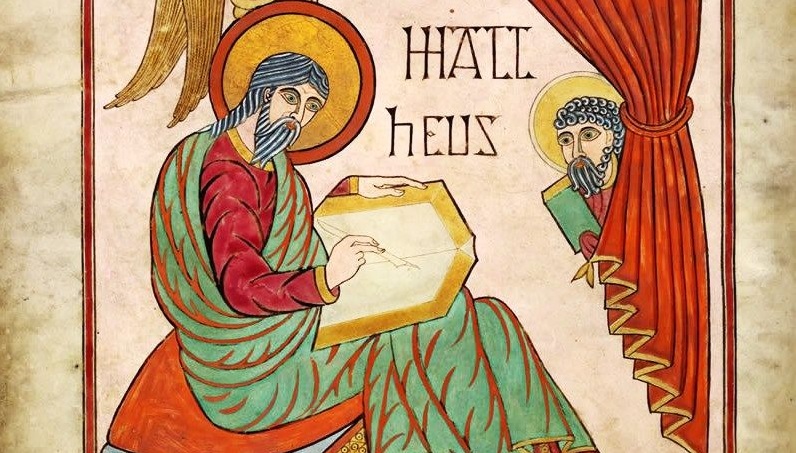.
Poet’s Note: The Venerable Bede tells us that in the 7th century Caedmon, “having lived in a secular habit till he was well advanced in years, had never learned anything of versifying.” Leaving a celebration because he feared having to sing, he spent the night in a stable where he took care of the horses. “A Person appeared to him in his sleep, and saluting him by his name, said, ‘Caedmon, sing some song to me.’ . . . Hereupon he presently began to sing verses to the praise of God.”
“Others after him attempted, in the English nation, to compose religious poems, but none could ever compare with him, for he did not learn the art of poetry from men, but from God; for which reason he never could compose any trivial or vain poem, but only those which relate to religion suited his religious tongue.”
.
In Days of Old
Fleeing the harp because he could not sing,
With the cattle he laid him down to sleep.
No man since Adam ever slept so deep.
God took his fear (a hard, unyielding thing)
And left a soft and lovely gift to cling
To him forever. Do the barren weep
When God gives children and a house to keep?
With joy old Caedmon let his praises ring!
Must what began in Eden end in Hell?
For a thousand years poets of our tongue
Remembered Caedmon’s God and all was well;
But we no longer sing as we have sung.
Cultures can die. And we have runes to tell
What life was like when our first bard was young.
.
.
Philip Rosenbaum lives in Gainesville, Virginia, with his wife, Jeanne. Now retired, he has been the director of a residential wilderness school for troubled boys, and the manager of a collection of antique fine art. He is the author of one published volume of verse, Holy Week Sonnets, and two published works in prose, How To Enjoy the Boring Parts of the Bible and The Promise (on the importance of honoring parents).















This is a finely crafted sonnet; note especially the unexpected and dramatic turn at line 8, where the poem moves with no transition (except the knowledge that a sonnet should have a turn about there) from then to now. Now seems less satisfying (as it should), but the moral is hardly pretentious, and the final sentence provides a resolution by pointing back to the beautiful octave. Well done! If I may suggest one little improvement, I would place a “the” separating the stressed syllables “years” and “po” of “poets” in line 10. That gives the line 11 syllables, but I am happy with two unstressed or elided syllables to begin an iambic line.
Simpler would be to omit “For” at the beginning of the line AND add a “the” where you specified. This would solve both problems.
“No man since Adam ever slept so deep.” and “Must what began in Eden end in hell?” are quite brilliant lines, connecting to each other, as well as connecting the poem to its theme of “our first bard.” Very beautiful!
I love the nod to the tradition of Christian poets, and how we no longer sing of the same things. Haunting and beautiful, and yet this image of Caedmon is somehow comforting.